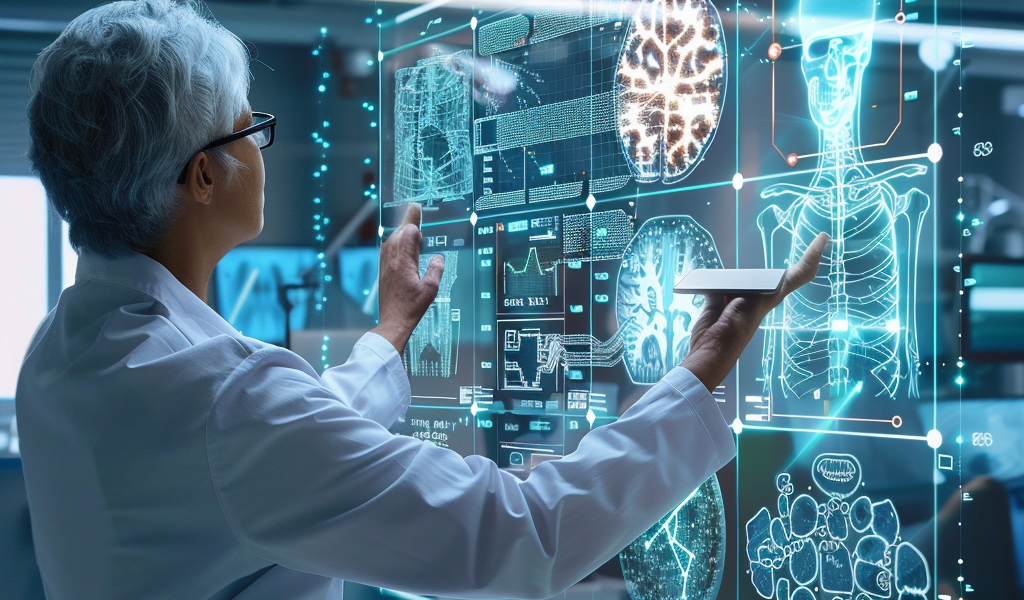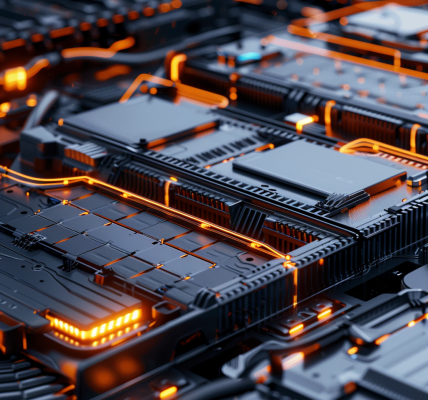The integration of artificial intelligence (AI) in healthcare, especially within the realm of radiology, is revolutionizing the way diagnostics are approached. Companies such as Qure.ai, Arterys, DeepMind, and Cleerly are at the forefront of this transformation, employing innovative AI technologies to enhance the efficiency and accuracy of healthcare services.
One of the standout companies in this field, Qure.ai, is developing advanced AI-driven tools designed to speed up and improve diagnostic processes. This technology aims to alleviate the workload of radiologists while simultaneously enhancing patient outcomes. As AI continues to embed itself into medical workflows, its potential to redefine the healthcare landscape, particularly in areas with limited access to radiologists, becomes increasingly evident.
AI’s Impact on Medical Imaging
At the core of Qure.ai’s advancements lies its ability to analyze vast quantities of medical images swiftly. Utilizing deep learning models, the AI system can interpret chest X-rays, CT scans, and MRIs, identifying critical health issues such as tuberculosis, lung cancer, and strokes. Notably, the AI’s capability to autonomously interpret these images is particularly beneficial in tuberculosis screenings, allowing healthcare providers to make prompt decisions without always relying on radiologist input.
This feature is especially vital in regions where healthcare resources are scarce. In areas heavily affected by tuberculosis, AI technologies are deployed to quickly identify cases that require further investigation. As Prashant Warier, co-founder and CEO of Qure.ai, shared in a recent interview, the AI system utilized in mobile diagnostic units in the Philippines has dramatically reduced the wait time for tuberculosis diagnoses—from several weeks to a mere 30 seconds. This technology has been successfully implemented at over 3,000 sites globally, showcasing its scalability and significant impact on healthcare delivery.
Enhancing Diagnostic Accuracy and Speed
The advantages of AI in radiology extend beyond rapid data processing; they also encompass improved diagnostic accuracy. Research indicates that Qure.ai’s AI technology can match or even surpass the performance of human radiologists in various diagnostic tasks. Warier highlighted a critical finding: when two radiologists evaluate the same chest X-ray, they tend to agree only 65% of the time, meaning there is a 35% chance of disagreement regarding the findings. In contrast, AI offers consistent outputs for the same X-ray, ensuring a higher level of reliability in diagnoses.
This consistency is crucial for patients, particularly for conditions that necessitate timely interventions, such as lung cancer. The ability of AI to deliver uniform results enhances the reliability of diagnoses, which can be a game-changer in the treatment and management of serious health issues.
AI Technology in Action
Qure.ai’s technology is not just theoretical; it has been put into practice with remarkable results. The AI systems are designed to assist healthcare professionals by providing them with accurate assessments of medical images, thus facilitating quicker and more informed decision-making. In regions where medical professionals may be overwhelmed or under-resourced, AI can serve as a vital tool, ensuring that patients receive timely care.
In addition to tuberculosis, Qure.ai’s technology is capable of analyzing a wide range of conditions. The AI’s ability to detect various health issues through imaging allows for early intervention, which is essential in preventing the progression of diseases. This proactive approach to diagnostics is particularly beneficial in developing countries, where access to specialized medical care may be limited.
The Future of AI in Radiology
The future of AI in radiology appears promising, with ongoing developments and research aimed at expanding its capabilities. As these technologies continue to evolve, they hold the potential to further transform the healthcare landscape. The emphasis on improving diagnostic accuracy and reducing the burden on healthcare professionals is likely to drive further adoption of AI solutions in medical imaging.
Moreover, as AI becomes more integrated into healthcare systems, the collaboration between human radiologists and AI tools is expected to enhance the overall quality of care. By working in tandem, these technologies can create a more efficient diagnostic process, ultimately benefiting patients worldwide.
As the healthcare industry embraces the potential of AI, companies like Qure.ai are leading the charge, demonstrating the profound impact that technology can have on improving health outcomes. The ongoing advancements in AI-powered diagnostics are set to redefine the standards of care in radiology and beyond.





